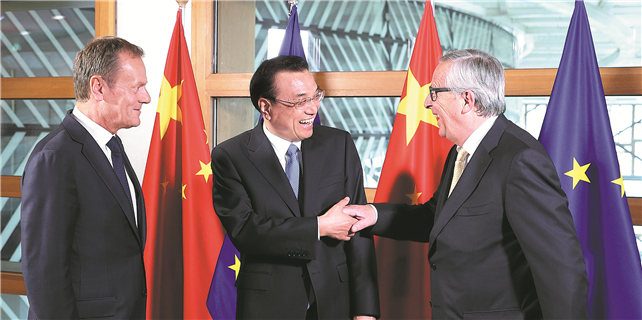EY says firms in war on graft
Chinese companies are tightening up their compliancy rules, and cracking down on bribery and corruption.
Stamping out "graft" has become a major priority for businesses here in the past two years, according to Emmanuel Vignal, head of Fraud Investigation & Dispute Services Department at EY in China.
"There is greater awareness about unethical and illegal behaviors," he said.
Vignal's comments came after a survey by global accounting giant EY, formerly known as Ernst & Young, revealed that awareness of bribery and corruption in the Asia-Pacific region had nearly doubled in the past four years.
The findings showed that 63 percent of employees polled at large companies believed corrupt practices "happened widely". The study covered 14 markets in the Asia Pacific, including China and India.
In 2013, the figure was just 32 percent, according to EY, one of the "Big Four" accounting firms based in London. Even in 2015, it was only 60 percent.
China is making vast inroads into tackling the problem.
Zhong Xue, a compliance professional with the Shanghai Pudong Development Bank, felt stamping out "graft" had become a major priority for business.
"My personal understanding is that compliance is now no longer considered a costly add-on to business but a vital function in reducing risks," Zhong said. "This is an important part of maintaining a company's reputation and securing business as well as retaining talent.
"For compliance professionals this means more workload and more resources."
Still, corruption problems persist in the wider Asia-Pacific region, the EY poll of 1,698 employees at large companies showed.
Financial institutions have come under close scrutiny from regulators and are now pursuing tougher compliancy rules. But the survey pointed out that other companies need to do more to expose corrupt practices.
"Regulators expect financial institutions to be responsible for maintaining a robust anti-money laundering policy and a sanctions compliance program for their entire operation," said Manhim Yu, a partner in Fraud Investigation & Dispute Services Department at EY in Hong Kong.
"As such, financial institutions must ensure their outsourcing vendors maintain the same anti-money laundering compliance control standards as the financial institutions themselves."
















